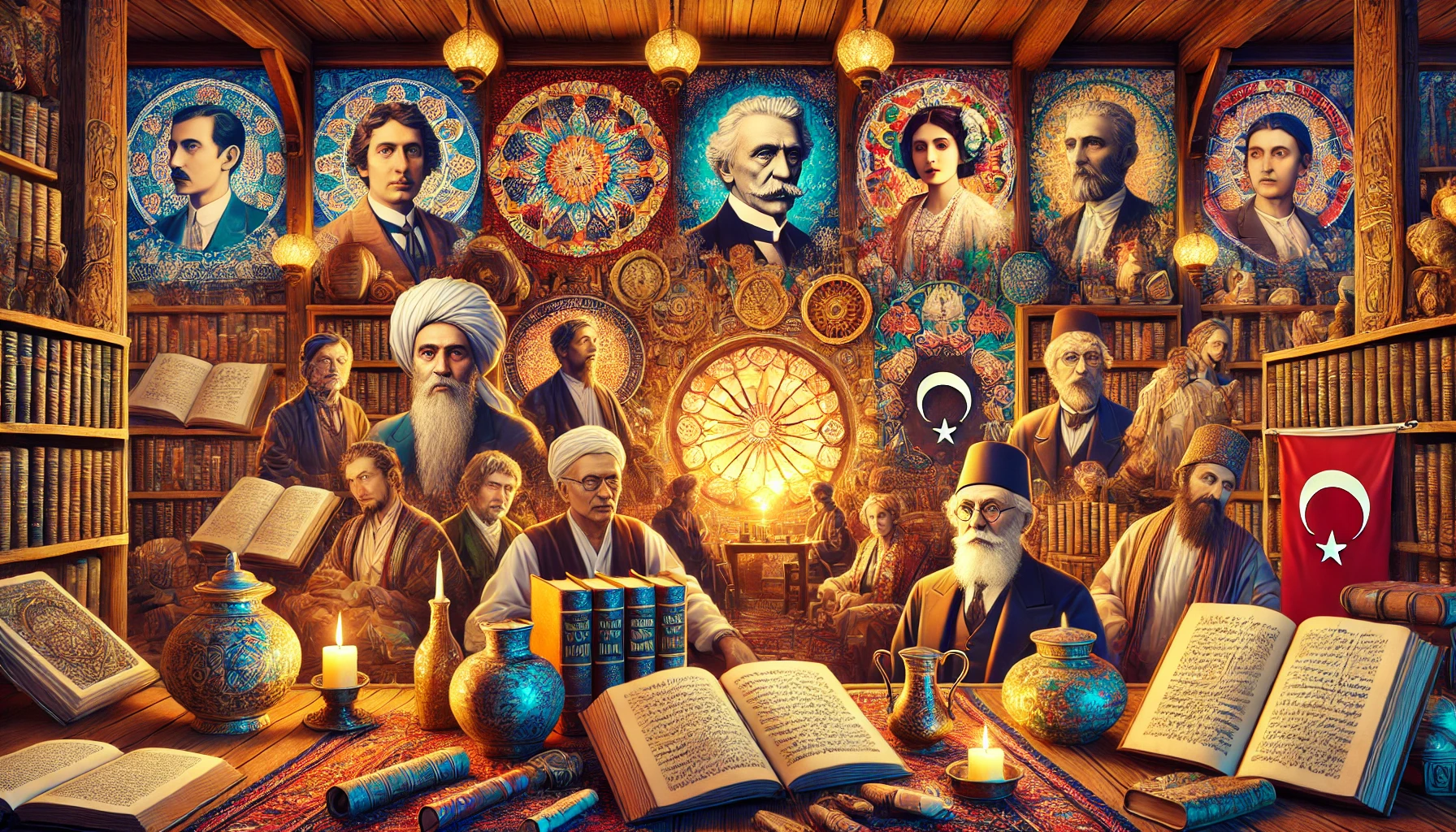The Evolution and Rich Heritage of Turkish Literature
The major works of numerous writers and poets have laid the foundation of Turkish literature for centuries. Turkish literature continues to grow and evolve, reflecting the nation’s rich cultural heritage and contemporary experiences. Legends, folk poetry, mani (a form of oral narrative), elegy, folk songs, and proverbs are among the popular narrative styles used in Turkish poems, novels, and short stories.
Traditional Narrative Styles in Turkish Literature
Legends and Folk Poetry
Legends and folk poetry have been integral parts of Turkish literature for centuries. These narratives often convey moral lessons, historical events, and cultural values through engaging and imaginative storytelling. Folk poetry, typically passed down orally, includes various forms such as epic poems and lyrical verses.
Mani
Mani is a traditional form of Turkish oral narrative, often consisting of quatrains with a rhyme scheme. These short, poetic expressions are used to convey emotions, observations, and cultural wisdom. Mani is a versatile form, found in everyday conversations, songs, and written literature.
Elegy and Folk Songs
Elegy in Turkish literature is a form of poetic expression used to mourn the loss of loved ones or reflect on sorrowful events. Folk songs, on the other hand, capture the everyday lives, joys, and struggles of the Turkish people. These songs often blend poetic lyrics with musical elements, creating a rich and emotional narrative experience.
Proverbs
Proverbs are an essential part of Turkish literature, encapsulating cultural wisdom and moral lessons in concise, memorable phrases. These sayings are used in both everyday speech and literary works to impart wisdom and reflect societal values.
Prominent Figures in Contemporary Turkish Literature
Orhan Pamuk
Orhan Pamuk, a Nobel laureate, is one of the most celebrated contemporary Turkish authors. His novels, such as “My Name Is Red” and “Snow,” explore themes of identity, history, and the clash between Eastern and Western cultures. Pamuk’s work is renowned for its intricate narratives and deep philosophical insights.
Nazim Hikmet
Nazim Hikmet is a revered Turkish poet and playwright known for his revolutionary and humanistic themes. His works, often written in free verse, reflect his political beliefs and his commitment to social justice. Hikmet’s poetry has had a profound impact on Turkish literature and continues to inspire readers worldwide.
Yaşar Kemal
Yaşar Kemal is celebrated for his novels that depict the lives of rural Anatolian people. His most famous work, “Memed, My Hawk,” portrays the struggles and resilience of the oppressed in Turkish society. Kemal’s storytelling is deeply rooted in the landscape and traditions of Anatolia, making his works a poignant reflection of Turkish culture.
Attila Ilhan
Attila Ilhan is known for his contributions to both poetry and prose in Turkish literature. His works often explore themes of existentialism, love, and political dissent. Ilhan’s unique style and innovative use of language have earned him a prominent place in Turkish literary history.
Peyami Safa
Peyami Safa is a notable author of psychological novels, exploring the inner lives and conflicts of his characters. His works often delve into themes of identity, morality, and the human psyche. Safa’s novels are characterized by their deep psychological insight and complex character development.
Namık Kemal
Namık Kemal is a foundational figure in modern Turkish literature, known for his contributions to the development of Turkish prose and drama. His works often address themes of freedom, patriotism, and social reform. Kemal’s literary legacy continues to influence contemporary Turkish writers.
Conclusion
Turkish literature, with its rich heritage and diverse narrative styles, offers a fascinating glimpse into the cultural and historical fabric of Turkey. From the traditional forms of legends, folk poetry, mani, elegy, and proverbs to the modern masterpieces of authors like Orhan Pamuk, Nazim Hikmet, and Yaşar Kemal, Turkish literature continues to evolve and captivate readers around the world. This enduring literary tradition reflects the complexities, beauty, and resilience of Turkish culture, providing a deep and meaningful connection to its past and present.
Latest Update: May 22, 2015
Your Content Goes Here
A brief summary of the key points in this article.




